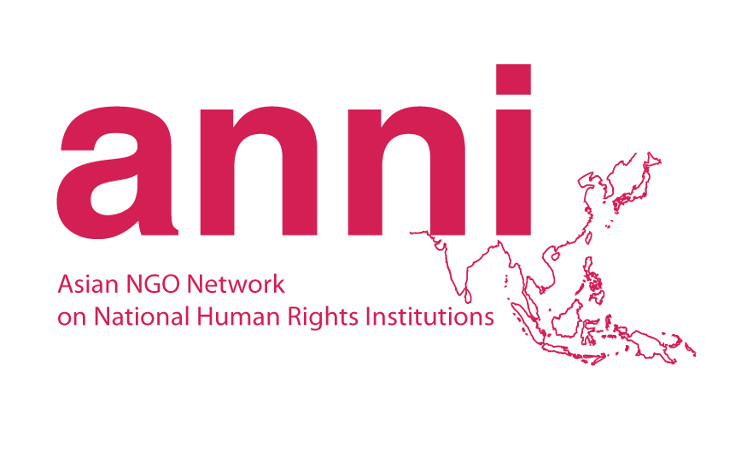A Quarter Century Of Komnas HAM : Challenge and Reflection
On Monday, July 9, 2018, the celebration of a quarter century or 25 years of Komnas HAM (Ed: Indonesia’s NHRI) was held in Komnas HAM parking area. Attendants of the event were hundreds of Komnas HAM staff in Jakarta and from the representative office. The event was more festive and nostalgic nuance with the presence of dozens of former members of Komnas HAM from various periods. Among them were Albert Hasibuan, HS Dillon, Zoemrotin, MM Billah, Hasto Atmojo, Lies Sugondo, Siti Noor Laila, Muhammad Nurkhoiron, Nurkholis, Roichatul Aswidah, Imdadun Rahmat, Ansori Sinungan, Ridha Saleh, Amidhan and Said Nizar.
The event was followed by a workshop with six speakers, namely Albert Hasibuan (Komnas HAM Member 1993-1998), Ifdhal Kasim (Chairman of Komnas HAM 2007-2012), Maria Hartiningsih (Yap Thiam Hien Award Winner), Yunianti Chuzaifah (Member of Komnas Perempuan ), Arif Zulkifli (Editor of Tempo Magazine), and Titin Rosmasari (CNN Indonesia Editor). The speakers shared their experiences and views with regard to Komnas HAM’s work in the past and how to reform it in accordance with the present era.
After the workshop, the activity continued with the tumpeng rice cutting done by the leaders and members of Komnas HAM, to be submitted to the former members of Komnas HAM and Komnas HAM staff representative. The tumpeng handover ceremony was very lively, colored with intimacy and laughter among them.
Founded 25 years ago in the twilight of Soeharto’s New Order, Komnas HAM senses apathy about the human rights body and wasthe second National Human Rights Institution (NHRI) established in Southeast Asia following that of the Philippines. Komnas HAM has been mandated by Paris Principles which set out the basic guidelines recommended by the UN in the establishment of a NHRI.
In the first few years skepticism was high. Komnas HAM was formed after global outrage at the 1991 Santa Cruz shootings in Dili, the capital of today’s Timor Leste. However, the first commission headed by retired military officer and Supreme Court judge Ali Said soon became a thorn in the side of the regime. Commissioners managed to create some independent space and deliver reports such as that regarding the May 1998 riots, which was regarded as extraordinary as the military, which still included the police, had never faced criticism from a state body beyond its control.
Ironically the commission’s credibility declined after Soeharto stepped down, even when more activists became members. Even a special law on Komnas HAM did not help boost its effectiveness. Despite the commission needing to speak with one voice in spite of differences, rifts became apparent.
Last month, Attorney General H.M. Prasetyo said investigations into past human rights abuses face the challenge of time, as both witnesses and perpetrators ‘may not even be alive anymore.’ He reportedly referred to Komnas HAM’s report as ‘assumptions and opinions.’ The Attorney General’s comment came even after President Joko Widodo reaffirmed his commitment to resolving cases of past human rights abuses and instructed Prasetyo to follow up on these cases.
His comment might be wrong because from Komnas HAM’s history we know that the commission managed to establish ad-hoc human rights trials for the cases of shootings in Abepura in Papua, Tanjung Priok in North Jakarta and the former East Timor. Human rights training for police and military also started under previous commissions. It means Komnas HAM has strong capability and experience on investigating past human right abuses.
In that case, the public finally know that the two main challenges that prevent investigations of human rights violations from going forward are the lack of cooperation from the Attorney General and security forces. The Attorney General and the Komnas HAM didn’t have full cooperation to resolve the cases. Another problem is that members of the military and police do not always give their full cooperation when being called by Komnas HAM, which negatively affects the commission’s investigations. The role of Jokowi as President who has good will to resolve the past human right abuses is important. Jokowi should play the role to call for strong collaboration of all stakeholders to perform for the sake of transitional justice.
A lot of recommendations from civil society for Komnas HAM to resolve the case. Komnas HAM must undergo a review, to have its mandate revised, so that it could have more authority to ensure that the results of its investigations are binding to the next institution that is responsible for dealing with such cases. But on the other hand, Komnas HAM must comply with the Paris Principles.
While the Paris Principles is a good starting point as normative principles, its limitations are best illustrated through an examination of the record of activities of human rights commissions. It is certainly true that compliance with the Paris Principles, many of which set a high standard, will augment the chances of ensuring an active and serious human rights commission. However the compliance with these principles in a founding statute will not ultimately guarantee a robust commission, unless commissioners are committed to respecting human rights and are willing to stand firm in the face of inevitable resistance from other government departments. This is also the reason why Komnas HAM’s policy needs to be reviewed.
Another battle is about Komnas HAM’s credibility. The new commission must restore credibility, which was made worse by the misuse of budget. Despite apathy, the continuous impunity for unresolved cases and intensified political tension starkly demonstrate the need for a much better human rights body, as victims find their voices drowned in various disputes. Land conflicts remain rampant, for instance.
For the original source click here.




